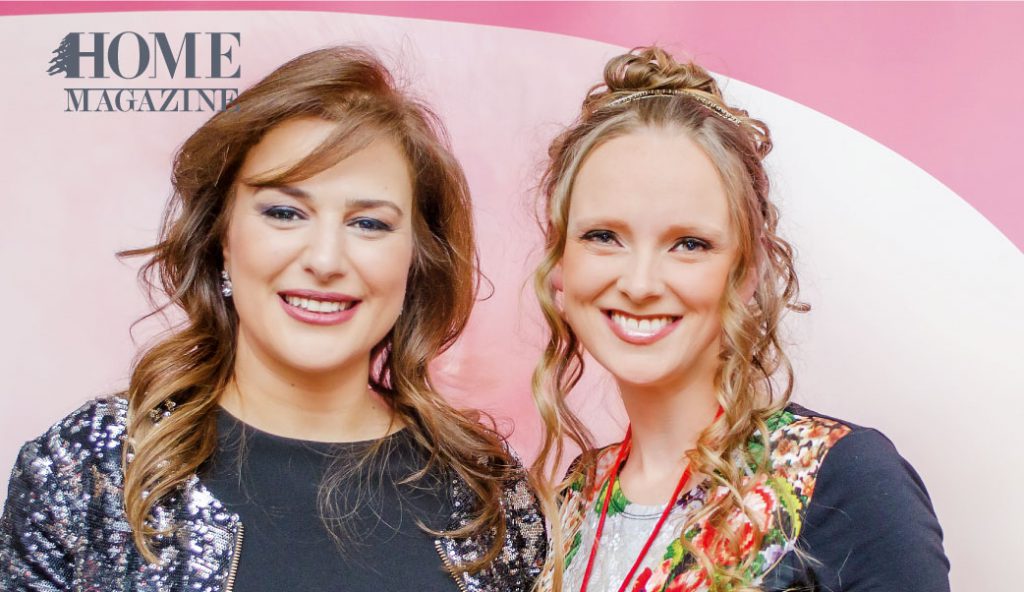Breastfeeding is much more than just nutrition, it is a relationship that benefits both mother and child.
Mommy’s Best is a Lebanese NGO founded in June 2009 by Linda Karam Baroud with a group of mothers, activists and a physician. Its main objective is to enhance parent-children relationships on various levels, such as emotional and physical development, communication, health and child security. The NGO focuses on topics related to raising a child in Lebanon, from the very conception through toddler years. Breastfeeding is one of Mommy’s Best’s major concerns, since breast milk is known for being the perfect food for babies. Nadiya Dragan El-Chiti, breastfeeding counselor and a La Leche League leader in Lebanon, has been a major partner in raising awareness. She outlines the importance of breastfeeding for both the mother and the child:
Importance of Breastfeeding for Babies
Many of us recognize that breastfeeding is good for our children’s health, but few know how significantly it can affect the whole course of our kids’ life.
Protection from illnesses: The World Health Organization estimates that 1.8 million babies can be saved every year if mothers breastfed for at least six months, as breastfeeding protects from the deadliest diseases – so much so that even the common flu is rare in an exclusively breastfed child.
Higher IQ: Breast milk has many components that boost brain development, such as taurine, and omegas 3 and 6. As a result, studies show that if we breastfeed for more than nine months, the child will have a higher IQ from the beginning of their school years up to graduation, regardless of the educational system. Healthy digestive track: Mothers’ milk is filled with live enzymes that help its digestion and make the task easier for the baby. Molecules of human milk are also small and very easy to digest for a young baby. That is why colic and reflux are much less common in breastfed babies compared to formula-fed babies.
Lower SIDS risk: Nature protects babies from Sudden Infant Death Syndrome with the help of breastfeeding. A mother’s milk is light and easy to digest, so if a baby’s heartbeat becomes unstable, the baby can easily wake up. This is not the case with artificial powdered milk (formula) where molecules are large and hard to break down. Babies often go into a long sleep after formula and this is when the SIDS risk is the highest.
Stem cells: It was recently discovered that breast milk has three types of stem cells – the miraculous cells of the human body that can be “reprogrammed” to regenerate many forms of human tissue and potentially be used to treat spinal injuries, cancers, and many other severe illnesses such as Parkinson’s disease and blindness.
Cancer-killing properties: Another recent miraculous discovery about breast milk is that it has a component, called HAMLET, which can kill cancer cells in human body. In 2013, two medicines have been created with the help of HAMLET from breast milk. Once the clinical trials are over these medications should be made available to cure more than 40 types of cancer around the world!
“Many of us recognize that breastfeeding is good for our children’s health, but few know how significantly it can affect the whole course of our kids’ life”
Importance of Breastfeeding for Mothers
Is breastfeeding good for mothers too? We hear of it so little, so here are some true facts that can put the benefits of a breastfeeding mother into perspective.
Can save mother’s life after birth: Starting to breastfeed early after birth can prevent and even stop excessive bleeding in mothers. When women breastfeed, their bodies release an oxytocin hormone (known as the “love” hormone). This hormone allows mom’s milk to flow to the baby, and causes mild uterine contractions – a process that prevents postpartum hemorrhage and helps the uterus return to its natural shape.
Reduces risk of ovarian, uterine and breast cancers: The research shows that the longer the mother breastfeeds, the more she is protected from these female cancers throughout her life.
Helps lose weight: A breastfeeding mother spends between 500 to 800 calories a day for nursing her baby, which is equal to running 10 km or swimming 30 laps in a pool!
Decreases risk of osteoporosis: Recent studies show that long-term breastfeeding results in better bone density and reduced risk of osteoporosis. In fact, women who breastfeed have a much lower risk of hip fractures after menopause.
Helps delay next pregnancy: The World Health Association recommends we wait at least two years from birth till next pregnancy for the best outcomes for mom, baby and family. Breastfeeding helps delay menstrual periods, which in return delays the “restart” of our reproductive cycles. While bottle-feeding mothers usually get their periods within six to eight weeks after birth, an exclusively breastfeeding mom will usually not have her cycle back for at least six months.
Reduces blood sugar level: Breastfeeding mothers have lower blood sugar level and even if they already had type one diabetes before pregnancy they would need much less insulin while they are lactating. For other women breastfeeding will reduce risk of diabetes later in life.
Creates a strong emotional bond with the baby: Every time we put the baby to the breast we give it a “full body hug” and establish eye contact, which builds a strong connection between a mother and her baby. It is a magical memory for the mother to see her baby gaze at her while nursing and then releasing the breast and giving her a big smile!
Protects mother from iron-deficiency anemia: Moms lose the biggest amount of iron through their monthly periods, and because breastfeeding delays the return of our menstruation it protects them from iron-deficiency anemia.
Reduced risk of “baby blues:” A nursing mom has a different “chemistry” in her body. Lactation and breastfeeding stimulate oxytocin hormone release, which is responsible for feeling love toward our baby and everyone around. At the same time prolactin, the milk-making hormone, reduces stress and tension, and makes mothers feel calm. Thus, breastfeeding fills a heart with love and peace, which reduces the chances of sadness or depression anytime after birth.
Saves money and allows us to sleep better at night: Buying formula is an expensive affair, especially if baby needs a special type of it. Breastfed babies rarely suffer from colics, digestive problems or ear infections. It’s also very unlikely for a breastfed baby to be hospitalized due to a severe illness, and even teething is easier for the baby as mothers’ milk acts as a local painkiller! Thus, studies show that in the course of the first year of life breastfed babies and their parents get much more rest than formula feeding ones.
Makes mothering easier: Any time a baby seems upset or unhappy the best and easiest solution for a breastfeeding mom is to offer it the breast. Most babies would be happily satisfied whatever their reason of sadness was: hunger, thirst, fear, insecurity, need of human touch and closeness, or even pain – breast milk has oxytocin hormone in it, which is a natural painkiller.

































